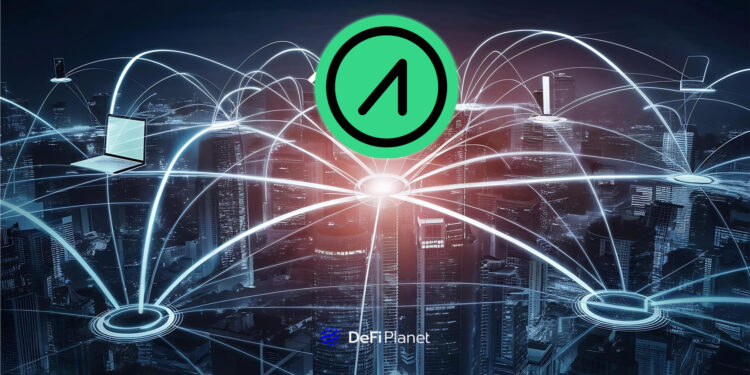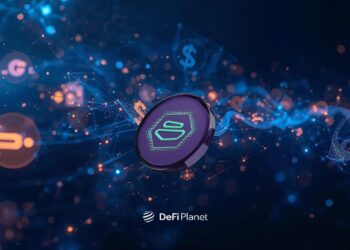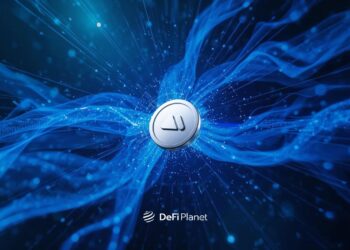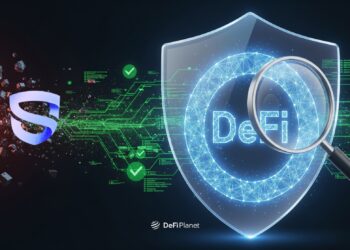Centralized content delivery networks (CDNs) like Akamai and Cloudflare have powered the internet for years, but their dominance also highlights a growing problem: control, cost, and scalability are bottlenecked by a few major players. As demand for high-quality, always-on content surges globally, the limitations of these traditional models are becoming more evident.
That’s where AIOZ Network comes in. Founded in 2018 by Erman Tjiputra and designed as a decentralized CDN powered by tens of thousands of nodes around the world, AIOZ blends blockchain incentives with peer-to-peer infrastructure to deliver faster, cheaper, and more censorship-resistant content delivery.
This review delves into how AIOZ works, what sets it apart from centralized incumbents, and whether it truly has the potential to disrupt the $18 billion CDN industry. Can AIOZ become the go-to decentralized infrastructure for the future of content delivery? Let’s find out.
What is AIOZ Network and How Does it Work?
AIOZ Network aims to provide a more efficient, scalable, and censorship-resistant infrastructure for content distribution.
The network utilizes blockchain technology to ensure transparency, reduce costs, and reward participants with its native token, AIOZ, for contributing resources to the network.
How does AIOZ Network Work?
At the core of AIOZ Network is its decentralized Content Delivery Network (dCDN), which operates through a vast array of global edge nodes.
These nodes are managed by individuals who share their unused storage, bandwidth, and computing power to help store and deliver media content.
This peer-to-peer system improves speed and reliability, reduces dependence on centralized servers, and creates a more secure, resilient network.
- Download the AIOZ Node Software: Available on the AIOZ Network website, users can choose between a graphical user interface (GUI) version for beginners and a command-line interface (CLI) version for advanced users.
- Install and Configure: The installation process is straightforward, requiring minimal technical expertise. Once installed, the node software utilizes the user’s spare storage and bandwidth to store and deliver content across the network.
- Start Earning: By participating in the network, node operators earn AIOZ tokens as rewards for their contributions.
Incentivization and Network Security via AIOZ Tokens
The AIOZ token serves as the native cryptocurrency of the network, providing incentives for participation and ensuring network security:
- Rewards for Contribution: Node operators receive AIOZ tokens proportional to the amount of data they store and deliver, encouraging active participation.
- Proof of Delivery (PoD): AIOZ employs a PoD consensus mechanism, rewarding nodes based on successful content delivery, thus maintaining the integrity and efficiency of the network.
Content Caching, Delivery, and Streaming Mechanisms
AIOZ Network‘s decentralized Content Delivery Network (dCDN) utilizes the collective resources of its nodes to handle content efficiently:
- Content Caching: Frequently accessed content is stored across multiple nodes, reducing latency and improving access speeds for end-users.
- Content Delivery: The network dynamically routes content through the most efficient paths, leveraging the geographical distribution of nodes to optimize delivery.
- Streaming Services: AIOZ supports decentralized streaming by distributing video content across its network, enabling seamless playback without reliance on centralized servers.
Smart Contracts and Transparency in Data Distribution
Smart contracts on the AIOZ blockchain facilitate transparent and automated operations:
- Automated Transactions: All transactions, including rewards distribution and content delivery agreements, are executed via smart contracts, eliminating the need for intermediaries.
- Transparency and Trust: The use of smart contracts ensures that all actions are recorded on the blockchain, providing an immutable and transparent ledger of activities within the network.
Through this decentralized approach, AIOZ Network aims to redefine content delivery by making it more efficient, secure, and accessible to users worldwide.
Benefits of AIOZ for Content Delivery
AIOZ Network offers a smarter, faster, and more reliable way to deliver content by using a decentralized, community-powered approach.

Performance: Reduced Latency through Edge Computing and Local Nodes
AIOZ uses a decentralized network of global edge nodes that store and deliver content closer to end-users. This proximity reduces the distance data needs to travel, resulting in faster load times and smoother streaming, especially important for video and real-time content.
This makes AIOZ particularly effective for bandwidth-intensive applications, such as 4K video, gaming, and metaverse platforms, where speed and responsiveness are crucial.
Scalability: Leveraging Global Idle Resources for Delivery
Instead of relying on a few centralized data centers, AIOZ taps into the unused storage and bandwidth of thousands of participants worldwide.
This makes the network naturally scalable, capable of handling surges in demand without overloading any single server or region. As more users join the network, AIOZ becomes stronger and more capable, with each new node expanding its delivery capacity.
Cost Efficiency: Lower Infrastructure and Operational Costs
By using existing devices and networks contributed by users, AIOZ significantly reduces the need for expensive server infrastructure and data center maintenance. These savings can translate into lower costs for content providers and better monetization options for creators. This model helps small businesses and independent creators compete with larger companies by lowering entry barriers.
Resilience & Redundancy: Reduced Risk of Single Points of Failure
Unlike centralized CDNs that can go down due to outages or cyberattacks, AIOZ distributes content across a decentralized network. If one node fails, others can instantly step in to deliver the data, improving uptime and reliability.
This distributed structure enhances overall security and makes the network more resistant to censorship or coordinated attacks.
User Empowerment: Revenue Opportunities for Node Operators and Content Creators
The AIOZ ecosystem rewards users who contribute computing power and content. Node operators earn AIOZ tokens for their service, while content creators can monetize their work directly through decentralized platforms, without intermediaries taking large cuts.
This creates a more equitable digital economy where participants are fairly compensated for the value they bring.
Comparison with Traditional CDNs
Here’s a clear side-by-side comparison of how AIOZ Network compare with traditional CDNs:

Challenges and Risks
While AIOZ Network offers various benefits, it is not without challenges:

Network Bootstrapping and Achieving Critical Mass
AIOZ’s biggest challenge is gaining enough users to reach a critical mass for its decentralized network. For the system to function well, a large number of people need to contribute their unused computing power and storage.
In the beginning, the network may struggle to maintain steady performance if there aren’t enough participants. However, as more users join, the platform’s performance will improve, though this process can take time.
Security Concerns: Data Integrity, Node Reliability, and Potential Abuse
Since AIOZ relies on user-operated nodes, it faces security issues related to data accuracy and the reliability of these nodes. Some nodes may provide incorrect data or be offline, which could disrupt content delivery.
Malicious users could also try to compromise nodes, impacting data integrity or availability. While blockchain and smart contracts can help address some of these issues, ensuring consistent security across a decentralized network remains a challenge.
Regulatory Hurdles for Content Distribution and Data Storage
AIOZ may face regulatory challenges related to content distribution and data storage, particularly since its network spans multiple regions. This raises concerns about data sovereignty, privacy laws, and compliance with regulations like the General Data Protection Regulation (GDPR) in Europe.
The decentralized nature of the network makes it harder to ensure compliance across different jurisdictions, potentially slowing adoption and triggering legal issues.
Competition from Other Decentralized CDN Projects
AIOZ faces tough competition from other decentralized CDN projects like Theta and Livepeer, which are already established in the market.
These platforms offer decentralized content delivery solutions, and gaining traction in such a competitive space can be difficult. The success of decentralized CDNs depends heavily on user adoption, which is challenging when centralized providers dominate the market.
Resistance from Established Centralized CDN Providers
The content delivery market is currently led by centralized companies like Akamai and Cloudflare, which have strong infrastructure and industry connections. AIOZ’s decentralized approach may face resistance from these established players, who are unlikely to give up their market share easily.
Large businesses often prefer the reliability and security of traditional CDNs, so AIOZ must prove its decentralized model offers clear advantages in performance, cost, and security to overcome this resistance.
Is AIOZ the Future of CDNs?
AIOZ Network presents an innovative and decentralized alternative to traditional CDNs, leveraging blockchain technology to provide scalable, cost-efficient, and more secure content delivery. While the platform’s potential is clear, it faces challenges in achieving widespread adoption, including network bootstrapping, security concerns, and competition from established centralized providers.
Ultimately, AIOZ’s future in content delivery will depend on its ability to scale, secure its network, and convince both content creators and users of the benefits of decentralization. If it can overcome these hurdles, AIOZ may very well play a key role in the evolution of content delivery, offering a viable solution for the next generation of decentralized internet infrastructure.
Disclaimer: This article is intended solely for informational purposes and should not be considered trading or investment advice. Nothing herein should be construed as financial, legal, or tax advice. Trading or investing in cryptocurrencies carries a considerable risk of financial loss. Always conduct due diligence.
If you would like to read more articles like this, visit DeFi Planet and follow us on Twitter, LinkedIn, Facebook, Instagram, and CoinMarketCap Community.
Take control of your crypto portfolio with MARKETS PRO, DeFi Planet’s suite of analytics tools.”





















